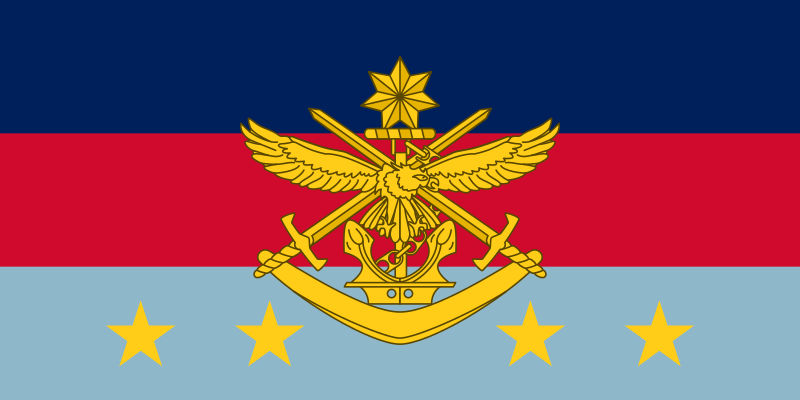Secretive ADF Middle East deployments are putting Australia at risk
January 15, 2024
On Friday, 5 January 2024, Iraqs Prime Minister Shia al-Sudani said he wanted all remaining US Coalition troops out of Iraq. He was speaking on the fourth anniversary of the US drone assassination of Iraqi and Iranian generals Abu Mahdi al-Muhandis and Qassem Soleimani at Baghdad Airport in January 2020.
What added a determined edge to al-Sudanis announcement was another US murder in Baghdad only the day before the anniversary that of Mushtaq Janad Kazim al-Jawari, a leader of an Iran-backed militant group operating in Iraq and Syria, an ally of Iraq.
The Iraqi parliament had voted for all Coalition troops to leave the country in 2020 when Soleimani was assassinated, but their resolution was not acted on by the government in Baghdad. Now it might be. The US has 2,500 troops in Iraq and 900 in Syria. Will Washington acquiesce in Sudanis request and withdraw, or will the escalation of tension in the region as the result of Houthi attacks on Red Sea merchant shipping cause it to dig in its heels and stay?
And, of more relevance to us, does al-Sudanis announcement affect Australias current minimal presence in the region? Maybe. Lets look at the recent history of our presence.
After contributing to the illegal invasion by the US-led Coalition of the Willing to topple Saddam Hussein in March 2003, Australia withdrew its combat forces in July 2009.
Under Prime Minister Tony Abbott, Canberra put back a Special Operations Task Group of some 200 ADF personnel in 2014-2015 to advise Iraqi security forces on how to combat the transnational Salafi jihadist terror group Islamic State, which had taken over from Al Qaeda and was making substantial gains in Syria and Iraq. How competent Australian armed forces, few of them fluent in Arabic, were to advise their Iraqi counterparts about their own local situation, was not explained.
As usual, the ADF went in at the US initiative, not at Iraqs invitation. The Iraqi government, clearly unenthusiastic about the ADFs return, refused to negotiate a status of forces agreement which would have provided the Australians immunity from prosecution for crimes they committed locally. So Foreign Minister Julie Bishop trashed the rules of diplomatic immunity by giving the troops diplomatic passports. The training program ended in June 2020. No report on its effectiveness or otherwise was given to the Australian Parliament or to the taxpayers.
As well as ground troops, Australia contributed aircraft as part of what was code-named Operation Okra F/A 18 F Super Hornets, an E-7A Wedgetail Early warning aircraft, a KC-30 tanker. The aircraft were based at Minhab airbase in the United Arab Emirates 24 kilometres south of Dubai. Minhab has been headquarters of the Australian Defence Forces Joint Task Force 633.
Coordinated by American forces, RAAF Hornets conducted bombing raids on targets across Iraq and Syria, including the accidental bombing of ground forces belonging to the Assad government at Deir ez-Zor in September 2016. These operations were reportedly concluded in September 2020, again without any public accounting about what they had achieved.
ADF personnel are now involved in another operation code-named Gallant Phoenix based in Aman, Jordan. Described as an intelligent fusion centre, it was established in 2013 to collect data on existing and potential terrorist threats, irrespective of their ideology. Led by a group calling itself the United States Special Operations, it includes a variety of agencies from 24 countries. Its most relevant contributors at present are the Iraqi Army and the autonomous Kurdish force within Iraq called Peshmerga. Gallant Phoenix has carried out secretive US-led anti-terrorist operations since 2017, again without any feedback.
Meanwhile, Australias membership of Gallant Phoenix has been stained by multiple allegations of sexual harassment by Special Forces soldiers in Jordan.
In sum, Australia still has the infrastructure, but is active only at the margins of military commitment in the Middle East. It has relinquished its tasks in tutoring Iraqis in the arts of warfare, anti-terrorism and security. And, much to the fury of the Australian Opposition and the Murdoch commentariat, the government this month has declined an American request to send a warship to combat Houthi attacks on merchant shipping in the Red Sea. Instead, it has committed a small number of ADF personnel to non-combat roles, whatever these may be.
But the political and journalistic forces demanding a re-think of this decision are strong and insidious. Opposition leader Peter Dutton has expressed his outrage at what he sees as a breach of loyalty by Prime Minister Albanese to Washington. So has The Australians Greg Sheridan, with his fixation about what he sees as the parlous state of Australias defence forces.
But The Australian goes further than confected horror at missing an opportunity to express once again our fealty to our great and powerful friend. In its Tuesday, 9 January edition, Alan Dupont, a former Australian intelligence officer outlined what he sees as broader implications of Houthi attacks on merchant shipping in the Red Sea. Ignoring the Houthis narrow focus on Israeli genocide in Gaza, he accuses them of wanting to overthrow the global order itself. For him, and for many officials in both Canberra and Washington, the new axis of evil is China, Russia, North Korea, Iran and its proxies Hamas, Hezbollah and the Houthis, allegedly united in their visceral rejection of western values, and determined to change the global balance in their favour.
In other circumstances, Duponts distortions and exaggerations would be seen as risible. But if they are earnestly taken up by Dutton, and reinforced, as they are likely to be by the Murdoch press, Prime Minister Albanese may be forced to rethink his position and make a renewed military commitment to the Middle East. This could have wider implications than anything Australia has done in the region in the last 30 years.
For more on this topic, P&I recommends:
https://www.abc.net.au/news/2024-01-12/britain-joins-strikes-against-houthi-rebels/103312432
https://new.thecradle.co/articles/violent-explosions-rock-us-occupation-base-in-syria
